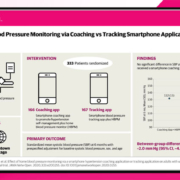Want Fewer Medications? Change Your Lifestyle
The study that we examined on Tuesday showed that a regular exercise program can help reduce the number of medications related to cardiovascular disease and type 2 diabetes. We’re not talking about youngsters; 51 subjects completed the study with an initial mean age of 54. There were some outcomes that were likely unexpected; for example, waist circumference did not change between the experimental group and control group over the five years. There was a significant decrease in body fat in the exercise group that explained the difference in body weight. Still, the control group lost about two pounds in five years while the exercise group lost about six pounds. That actually turns out to be a good thing, as I’ll explain a little later.
The Exercise Program
The high-intensity interval training was just as advertised: intense. It included a 10-minute warm up, followed by four 4-minute intervals at 90% of maximum heart rate (HRMax) interspersed with 3 minutes of active recovery. They finished with a 5-minute cooldown. They used percentage of HRMax as assessed in the exercise test, because that’s an intense level. The focus is on the 4 minutes but those 4 are brutal. You do get to rest, but then you have to do it over again, and that’s a significant challenge to the cardiovascular system. As people got fitter, the intensity would be changed to sustain the 90% level.
What surprised me was that there was no organized exercise activity in the other eight months of the year; they just kept track of activity levels using the activity monitors. There were no differences between the control group and the exercise group in the eight months with no organized activity. That’s interesting.
Most Variables Didn’t Change
This probably surprised the researchers, but it was a desirable outcome. There were no significant differences in body fat, waist circumference, BMI, or overall percentage of body fat. While the subjects probably would have liked to have lost more weight, the fact that they didn’t shows that the changes that occurred in the risk factors for cardiovascular disease, such as high blood pressure and low HDL cholesterol as well as a lower insulin levels, showed that the difference was the actual exercise program itself. The differences in distribution of nutrients in the diet and in the total caloric intake were insignificant. As I mentioned earlier, the number of steps per day and other activities were still even. That means, again, the changes could be attributed to the exercise program alone.
The Bottom Line
What is abundantly clear is that if you really want to reduce medications, you have to pay the price by changing your lifestyle. In this study they focused on one variable: exercise. If you add a change in dietary intake, and or a change in the distribution nutrients, you may get even more benefits. But for me, it answers the question that I started with. You want to reduce medications? Change your lifestyle.
Is it worth it? That’s your call. But that’s what Aging with a Vengeance is all about.
What are you prepared to do today?
Dr. Chet
Reference: MSSE. 2021. 53(7):1319-1325.









